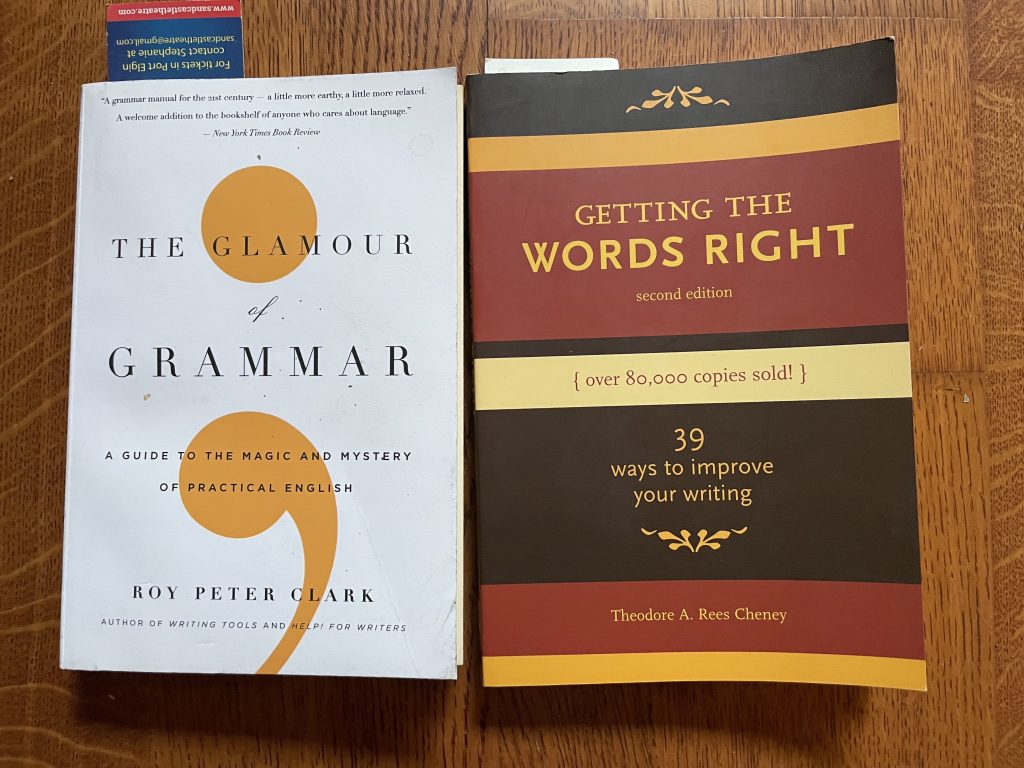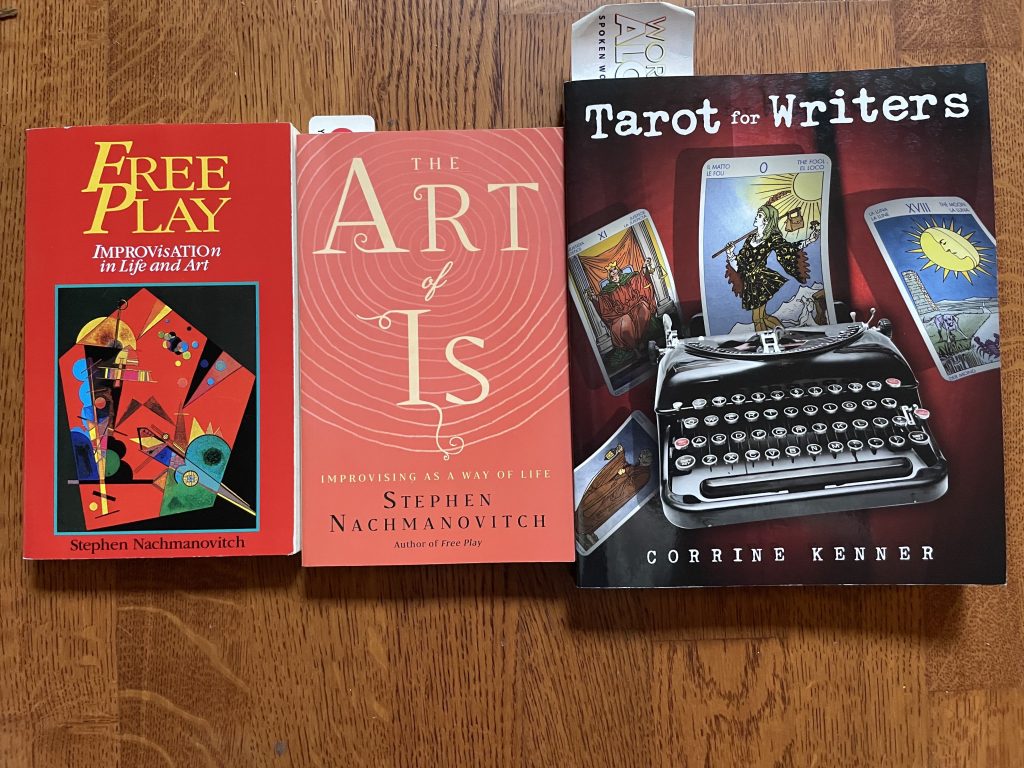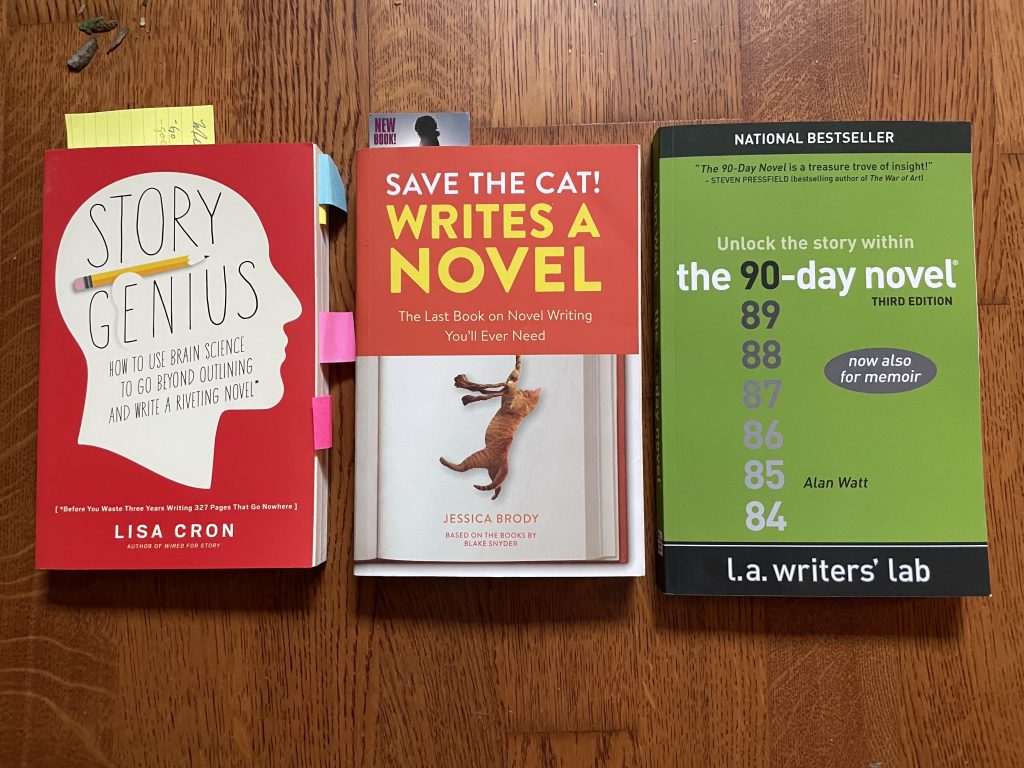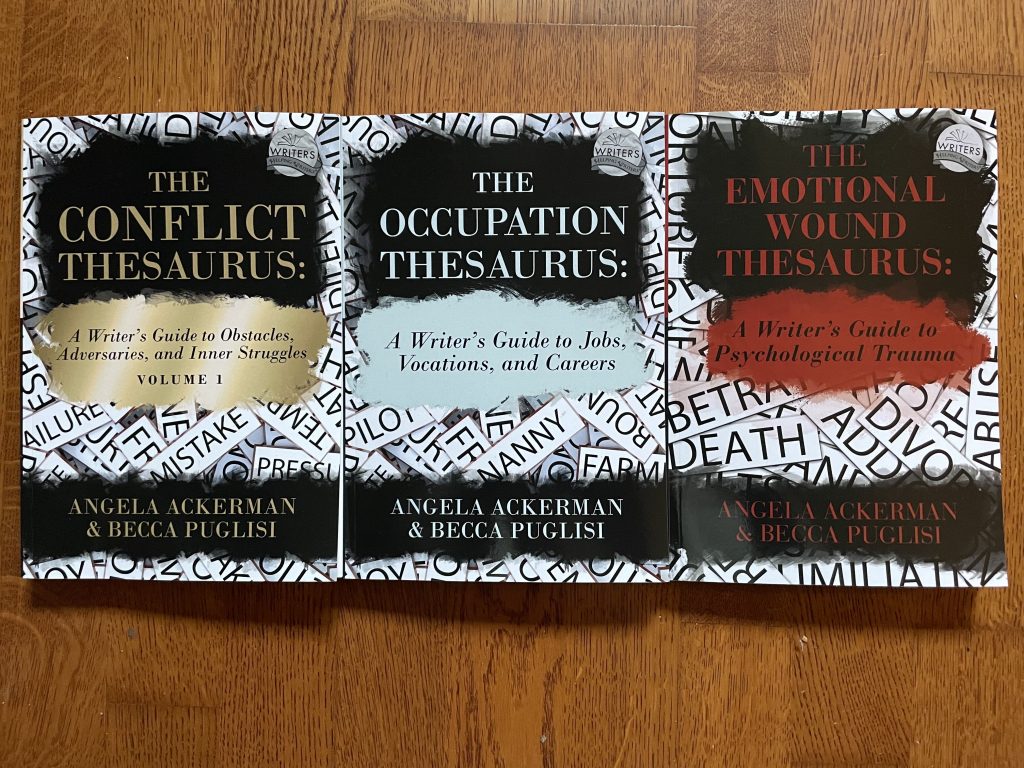
If you’re a writer, chances are, you’re a reader. And there’s a high probability, like me, you’re a bookaholic. You can’t get enough. Walk by a bookstore? Only with the greatest inner fortitude. But now you don’t even have to walk by! I’ll be quietly working away at my day job, when—DING—there’s an email, Chapters / Indigo is having a sale. Pop to their website, scan the titles, order, pay, and boom, back to work. Or, I’ll be listening to a podcast while I work, a book suggestion comes up, pop over to Amazon, no min order needed to get free shipping, just a click away and the book is somehow already shipped.
The number of books on writing is mind-boggling. I remember when I started writing—long before Amazon–finding books on writing meant scouring remote sections of a bookstore and wondering where exactly they’d be shelved. Writer’s Digest was a window on to a world I was just learning about. And I’m still a subscriber.
As with anything, what we need to learn changes with time. The more we learn, the more we realize we don’t know. Here’s a rundown on the current books I’m reading on writing.

Books on Grammar & Editing
- The Glamour of Grammar, by Roy Peter Clark – A Guide to the magic and mystery of practical English. This book opens with the Introduction: Embrace grammar as powerful and purposeful. It’s then split into the following parts:
- Part One: Words
- Part Two: PointsRoy
- Part Three: Standards
- Part Four: Meaning
- Part Five: Purpose
I can’t seem to own enough grammar books. Each one comes with its own style and method of delivery. This one clearly explores a love of language, the rules and how and when to break them.
- Getting the Words Right, by Theodore A. Rees Cheney – 39 ways to improve your writing. Did I mention I’m on the final edits of my novel? That’s why a sudden re-interest in grammar rules, making sure I get it exactly the way I intend. Why not just re-read my other grammar books? Because these again, are presented in a different way with a different focus than my other books. While the previous book was written in prose style with a deep sense of the love of language, this book is a more practical how-to and written more in an instruction manual style—to be dipped into as needed.

Books on Inspiration & Play
- Free Play, Improvisation in Life and Art, by Stephen Nachmanovich and, The Art of Is, Improvising as a Way of Life. I was introduced to this author by a workshop I attended at Sarah Selecky’s online group, Centered. These books are both inspiration and aspirational for me. I tend to be a plotter and planner, so I can always use a little more jazz in my writing. Both books are written in a prose style.
- Tarot for Writers, by Corrine Kenner. This is a fun book on how to use tarot cards to create characters, for storyline and plot, for setting and description, for breaking writer’s block, and finally, even using the tarot as the “poor man’s writing coach”. Another fun way to reach the creative side of the brain.

Books on Story Structure
- Story Genius, How to use brain science to go beyond outlining and write a riveting novel, by Lisa Cron. As you can guess, this is a book about planning a novel or story. I started reading it, have many pages marked, but have set aside for now. I want to read it as I’m planning my next novel. I can’t remember exactly, but think this might have been a suggestion from my writer’s group.
- Save the Cat! Writes a Novel, by Jessica Brody. This was definitely a writer’s group suggestion and another book on planning your next novel. (After editing my current novel for so long, I want to get the planning of the next right, or at least closer to right.) Again, another interesting read that I started and decided to look at more closely in the planning of my next novel.
- The 90-day Novel, by Alan Watt. I attended a workshop by Alan Watt through Sarah Selecky’s group, Centered. Loved his approach and style, so of course, bought the book. This book has 90 days of instruction and exercises for dreaming up your next novel. Obviously, I’m not quite there, but am holding this as a nice way to kickstart it when I’m ready. Alan Watt also offers an online writing workshop based on the premise which he developed at the l.a. writers’ lab.
And what writer doesn’t love a few reference books:

Reference Books
- If you haven’t yet heard of this series, I suggest you check it out. I was introduced to these books through my writers’ group, again. These are written by Angela Ackerman & Becca Puglist. I already owned: The Negative Trait Thesaurus, The Positive Trait Thesaurus, and The Emotion Thesaurus. These books are laid out nicely, each topic getting two pages of detailed lists for every heading. I just added three more to my collection: The Emotional Wound Thesaurus, The Occupation Thesaurus, The Conflict Thesaurus.
These are great reference books when you’re dreaming up new characters and situations. They can be used to look specific items up, or just for inspiration when figuring out what your next story needs.
If these books don’t answer your writing questions, don’t worry, there’s hundreds more! And let me know what books you’re reading! Happy reading, happy writing.
Great suggestions Diane! I too want to check out the Tarot for Writers as it sounds like fun. Enjoy your mini staycation!
Thank you! I hope to have more time to play with the Tarot for Writers as soon as I’ve finished my final edit…almost there.
Hi Diane,
Awesome title suggestions – LOVE the idea of Tarot for Writers – sounds like fun. Thanks for the ‘tools’. I think we never know what might strike a chord at any given point in the process.
Hope the novel editing is going well.
Bernice
Thanks Bernice. I’m taking a wee staycation at the moment, editing away…